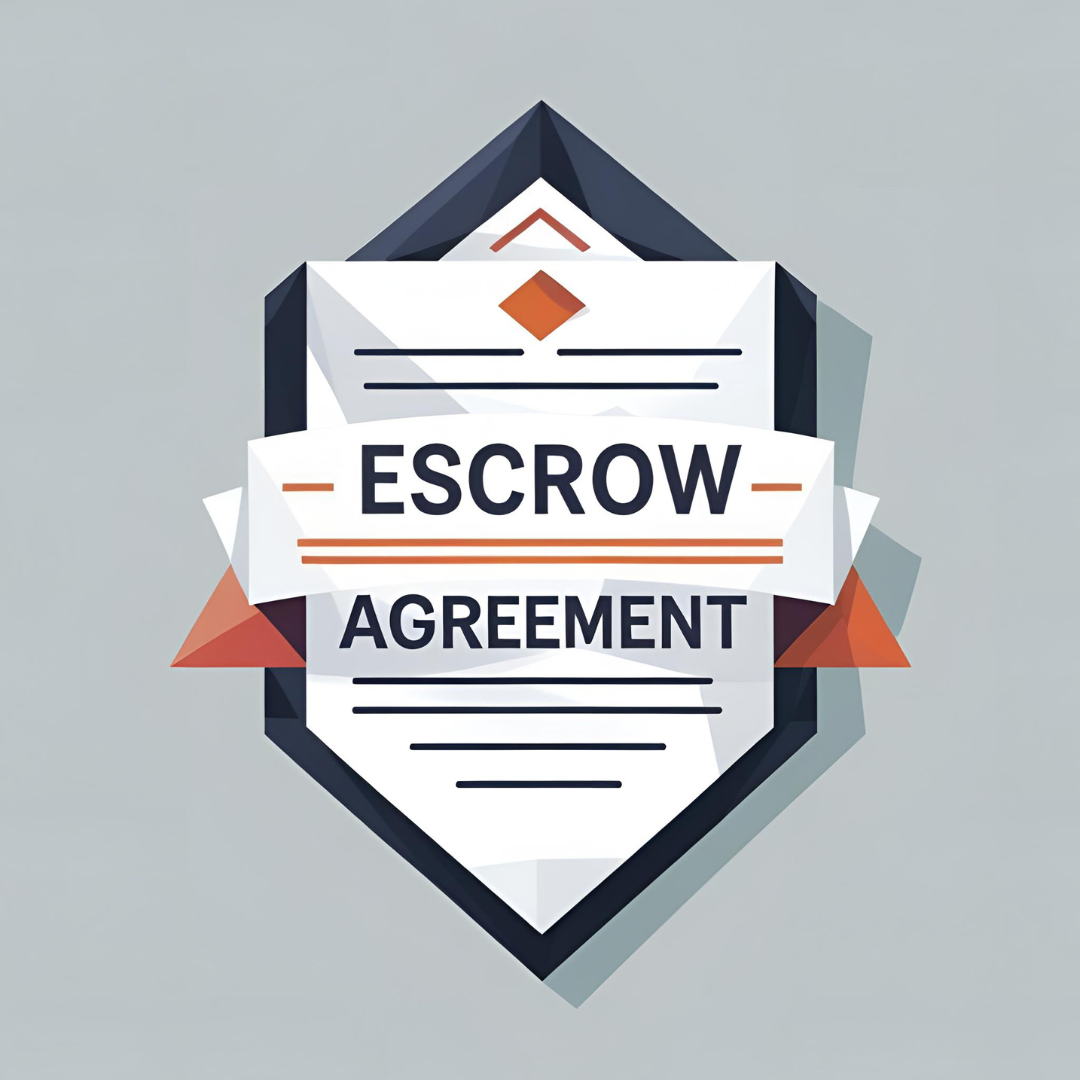An Escrow Agreement is a legal contract involving three parties:
- Buyer (or promisee)
- Seller (or promisor)
- Escrow agent (a neutral third party)
The escrow agent holds money, documents, or assets on behalf of the buyer and seller until the agreed conditions of a transaction are fulfilled. Once these conditions are met, the escrow agent releases the item to the appropriate party.
How Does It Work?
- Agreement: Buyer and seller agree on terms (e.g., delivery, quality, deadlines).
- Deposit: Buyer deposits money or assets into escrow with the agent.
- Verification: Seller fulfills their part (e.g., delivers goods or services).
- Release: Once conditions are verified, escrow agent releases funds to the seller.
- If Dispute Arises: The escrow agent withholds the release until resolution or legal judgment.
When Are Escrow Agreements Used?
- Real Estate Transactions: To ensure property paperwork and payment exchange fairly.
- Mergers & Acquisitions: To hold shares, funds, or IP until final approvals.
- Freelancing and Online Services: Platforms like Upwork use escrow to protect both clients and freelancers.
- Software Source Code Escrow: To hold source code in case a vendor goes out of business or breaches contract.
Key Elements of an Escrow Agreement
- Parties involved
- Description of escrowed item (money, document, code, etc.)
- Conditions for release
- Duties and liabilities of the escrow agent
- Dispute resolution mechanism
- Termination clause
Benefits of Escrow Agreements
- Security: Reduces risk of fraud for both parties.
- Neutrality: Third-party involvement builds trust.
- Dispute Protection: Clear conditions and documentation help prevent litigation.
- Transparency: All parties are informed of the process and progress.
Challenges and Risks
- Delay: Verification processes may slow down the transaction.
- Escrow Agent Reliability: Choosing an untrustworthy agent can lead to misuse or delays.
- Legal Complexity: Drafting and enforcing escrow agreements may require legal assistance.
- Fees: Escrow services typically charge a fee, which increases cost.
Escrow in the Context of IT and Cyber Law
- Software Escrow: Protects businesses from vendor lock-in. The source code is kept in escrow and released if the vendor fails to maintain or support the software.
- Digital Transactions: In India, some digital payment platforms offer escrow-like services to protect users in marketplace-style platforms.
- IT Act, 2000: While the IT Act doesn’t directly define escrow, its provisions on electronic records, digital signatures, and online contracts legally support such agreements when done electronically.




